Loneliness is deadlier than smoking 15 cigarettes a day, and worse for you than being overweight: America’s top doctor joins UN fight against isolation
America’s top doctor has joined UN efforts to combat the scourge of loneliness, which he says is more dangerous than obesity, physical inactivity – and even smoking 15 cigarettes a day.
Dr. Vivek Murthy, the surgeon general, this week joined a UN commission on social connection, which aims to tackle global isolation and the higher rates of stroke, anxiety, dementia, depression and suicide it causes.
Rates of loneliness have been increasing for years, but quickly worsened during pandemic lockdowns.
Americans spent about 20 minutes a day with friends in person in 2020, compared to an hour a day about two decades earlier.
Ken Mattlin, 86, of Bakersfield, California, has turned to robots and gadgets for companionship during America’s loneliness epidemic
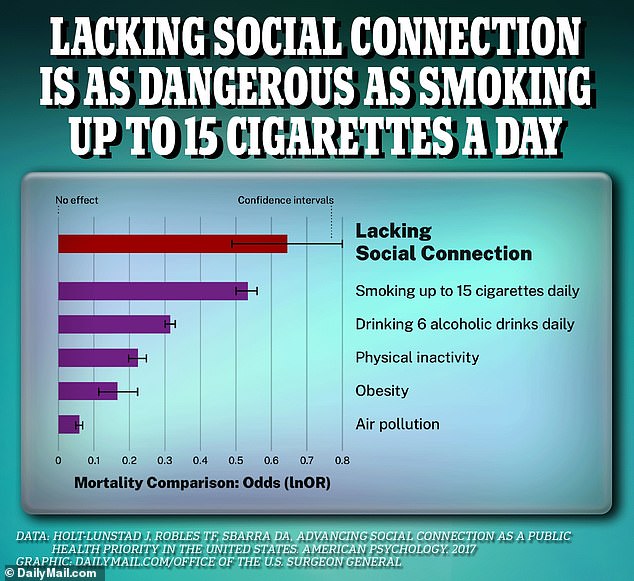
Living in social isolation can be as bad for your health as having almost a pack of cigarettes a day
The UN World Health Organization (WHO) says the problem extends far beyond US borders.
About a quarter of older people worldwide are socially isolated, as are between 5 and 15 percent of adolescents, research shows that is likely an undercount.
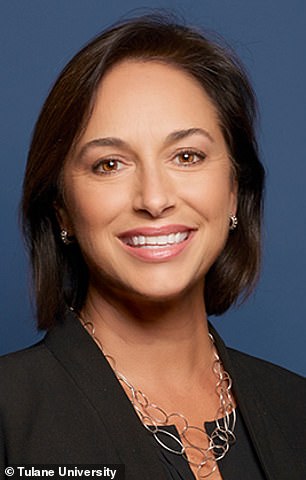
Google’s health chief Karen DeSalvo is also on the UN panel
Dr. Murthy, co-chair of the WHO’s 11-member panel, said social isolation has “profound consequences for health and society,” including a 30 percent higher risk of heart disease.
“We have an obligation to make the same investments in rebuilding the social fabric of society as we have made in addressing other global health challenges, such as tobacco use, obesity and the addiction crisis,” he said.
In an advisory in May, Dr. Murthy urged Americans to spend more time with friends, family members and colleagues, and spend less time online, staring at their smartphones or glued to social media.
Social disconnection is as bad for you as smoking fifteen cigarettes a day, the advice says.
It’s also worse than being obese or not exercising.
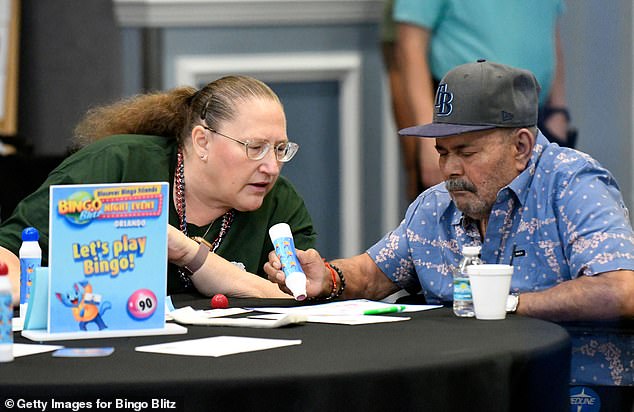
In Kissimmee, Florida, a program of group bingo and meals aims to build a sense of community and tackle loneliness
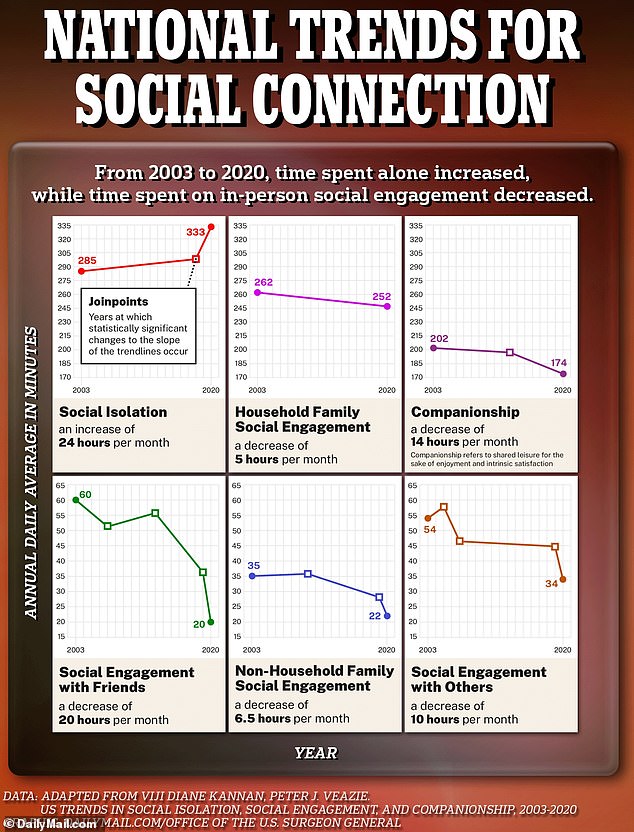
America’s own report on social isolation contained worrying findings for the country of 340 million people
Loneliness increases the risk of premature death by almost 30 percent, and people with poor social relationships are also at greater risk of stroke and heart disease.
Isolation also increases the chance that someone will develop depression, anxiety and dementia.
Now more than half of Americans experience loneliness, especially younger adults.
The amount of time Americans spent with friends fell by 20 hours per month between 2003 and 2020.
Meanwhile, time spent alone shot up by as much as 24 hours, likely exacerbated by Covid lockdowns.
The pandemic caused schools and workplaces to close their doors and millions of people to isolate themselves at home, away from their loved ones.
Technology has exacerbated the problem.
One study found that people who used social media for two hours or more a day were more than twice as likely to feel socially isolated than those who used such apps for less than 30 minutes a day.
Research shows that Americans, who have become less involved in worship services, community groups and even their own families in recent decades, are steadily reporting increasing feelings of loneliness.
The number of single American households has also doubled over the past sixty years.
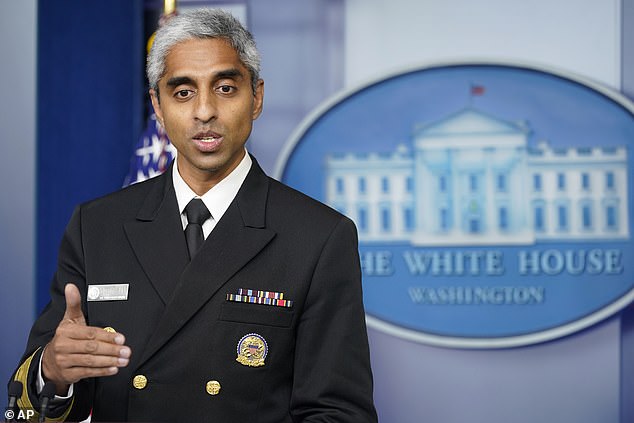
Dr. Vivek Murthy will co-chair the World Health Organization’s three-year panel on social isolation
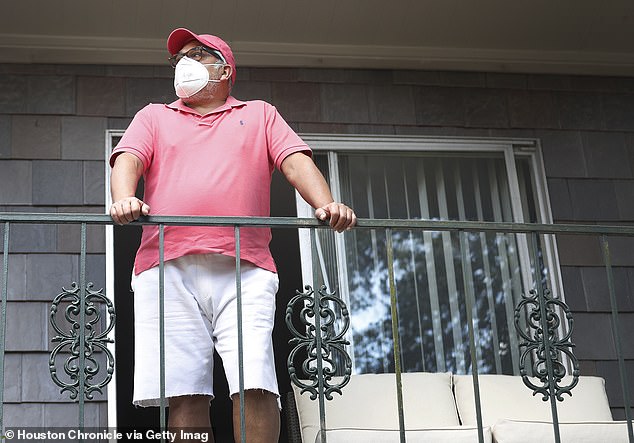
Covid lockdowns forced the country into isolation. Here is Jose Guerra standing on his balcony in Houston during a period of quarantine
To combat the plague of loneliness, children need to learn how to build and maintain healthy relationships, chat with friends, join social clubs, volunteer or go out for dinner with people, the consultancy says.
Socially connected people live longer because loneliness can cause chronic stress, leading to inflammation that damages tissues and blood vessels.
The WHO committee brings Dr. Murthy along with other global experts on the problem – from Japan’s Loneliness and Isolation Minister Ayuko Kato to Google’s chief health officer Karen Desalvo.
They will meet for the first time next month and are tasked with assessing the levers governments can use to bring people together and reporting back in early 2025.
Dr Murthy’s co-chair, African Union Youth Envoy Chido Mpemba, said loneliness is a global problem that can “affect anyone, at any age, anywhere.”
He called for more ‘investments in social connection.’
